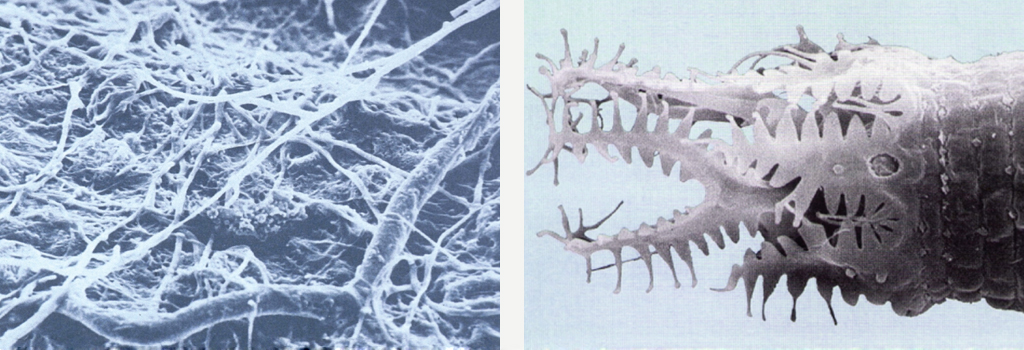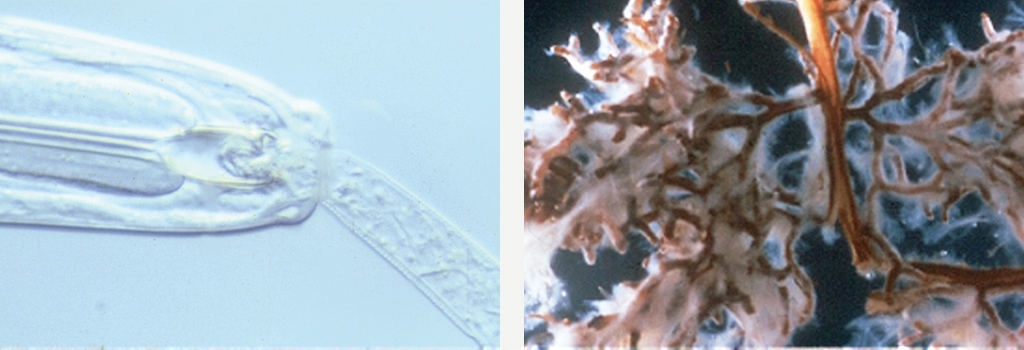

| Mission | Method | Services | Boxwood | Results | Projects | News | Lectures & Symposiums | About | Contact |
Our Organic Sustainable Landscape Program utilizes a holistic approach that encourages the natural systems and growth patterns in the environment. This is done through careful scientific methodology and is centered around 7 main components:
Proper soil management and composting are at the core of this approach. Soils and compost are tested regularly in-house and sent out to independent labs for chemical, biological, and textural analysis. Liquid biological amendments (LBA) often referred to "compost tea" is one of many tools that may be useful in making biological adjustment, depending upon the particular diagnosis and need. When utilized the quality and the characteristics of the LBA must be verified with a microscope by a qualified technician. LBA are only as good as the compost utilized for infusion. It should not be confused with fertilizers. When appropriate LBA are utilized to balance microbial activity and diversity in the soil improve nutrient availability and disease suppression. |
||||
Nutrient Cycling
F2 Environmental Design's landscape design and management techniques focus on encouraging the natural nutrient cycling systems and growth habits of the plant environment. This environment - involving bacteria, fungi, microbes, and roots - is encouraged by compost and liquid biological amendments, rather than vast amounts of high nitrogen fertilizers and pesticides. This natural approach improves nutrient and moisture availability and retention, suppresses disease, aerates the soil, and degrades harmful pollutants in the environment. |
BENEFITS OF NUTRIENT CYCLING 1. Nutrient Retention. Beneficial organisms keep nutrients in the root zone where they are accessible by plants. Bacteria and fungi take up nitrogen and other micronutrients in the soil preventing them from being lost through leaching past the root zone and into the water supply where it will contaminate the water table. 2. Nutrient Availability. Nitrogen and other nutrients are more available for plants as a result of the action of microorganisms in the soil. Protozoa feeding upon bacteria and fungi excrete N in a very plant available form. The symbiotic relationship between fungi and roots help plants filter needed micronutrients from the soil. We are balancing microbial activity to optimize the nutrient cycling capacity. 3. Disease Suppression. Beneficial fungi and nematodes protect the roots of plants from potentially harmful organisms, which are always present in the soil. 4. Water Retention. Organic matter high in beneficial microbial diversity and activity promotes root growth thereby retaining water in the root zone long enough to be taken up by plants rather than being lost as drainage. 5. Aeration. Beneficial organisms aerate and give structure to the soil by creating air holes and drain pockets. This reduces compaction and maximizes water availability for use by plant roots. 6. Degradation of Pollutants. A diverse soil ecology includes organisms that consume (degrade) a wide range of pollutants over a wide range of environmental conditions. |
|
Microbes

Bacteria & Fungi consume leaf litter and facilitate its decay into plant available nutrients. |
Bacterial-Feeding Nematodes release critical plant nutrients, such as nitrogen, through their feeding activities. |

Predation by Beneficial Nematodes reduces pests, in turn improving the health of plant roots. |
Mycorrhizae are a symbiotic infection between plant root and fungi, enabling the plant to metabolize critical nutrients. |

By releasing pheromones, Fungi lures a root feeding nematode and consumes it. |
|
| ©F2 Environmental Design |